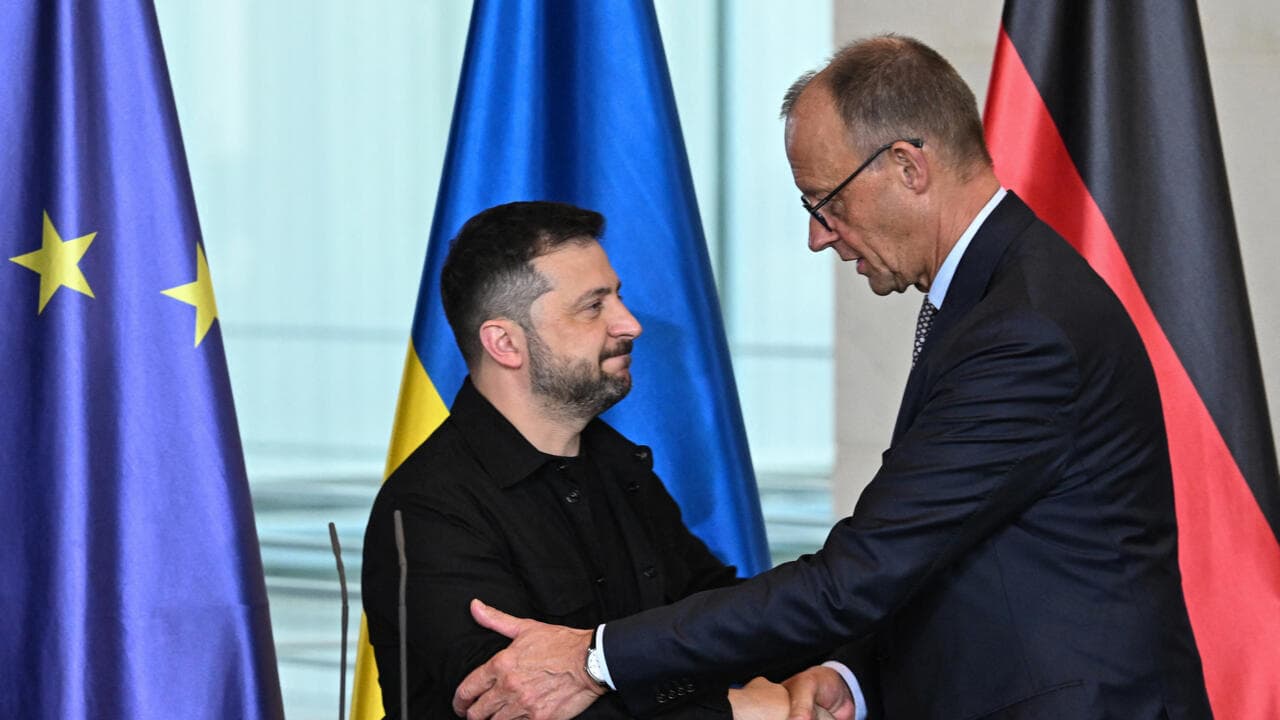Zelensky Arrives in Berlin for High-Level Diplomatic Push with Key European, U.S., and NATO Leaders

Berlin – Ukrainian President Volodymyr Zelensky arrived in Berlin today, August 14, 2025, for a series of critical diplomatic engagements aimed at bolstering international support amidst the ongoing conflict. According to a tweet from NEXTA, President Zelensky is scheduled to meet with German Chancellor Merz and participate in videoconferences with a diverse group of influential figures, including former U.S. President Donald Trump, U.S. Senator J.D. Vance, various European leaders, and NATO Secretary General Mark Rutte. This visit underscores the persistent need for coordinated international efforts to address the multifaceted challenges facing Ukraine.
President Zelensky's arrival in the German capital highlights Berlin's continued pivotal role in European security and the broader response to the conflict. The meeting with Chancellor Merz, who assumed leadership in this hypothetical future, signifies Germany's ongoing commitment to supporting Ukraine through diplomatic and material means. Discussions are expected to focus on sustained aid, reconstruction efforts, and potential pathways for long-term stability in the region.
The inclusion of Donald Trump and J.D. Vance in the videoconferences introduces a significant dimension regarding future U.S. policy towards Ukraine. Both figures have previously expressed skepticism about extensive foreign aid, signaling that discussions may address the evolving nature of American support and its implications for the conflict. Their participation suggests a direct engagement with key voices that could shape the trajectory of U.S. involvement.
NATO Secretary General Mark Rutte's involvement underscores the alliance's central role in European security and its unwavering support for Ukraine's sovereignty and territorial integrity. His presence indicates that the talks will likely cover strategic cooperation, defense capabilities, and the broader security architecture of Europe. The collective engagement of European leaders further emphasizes a unified front in addressing the geopolitical landscape.
This series of high-level meetings is anticipated to shape future strategies for international assistance and diplomatic resolutions concerning the conflict. The breadth of participants reflects the complex and interconnected nature of the challenges, requiring a comprehensive and coordinated global response. Outcomes from these discussions are expected to provide clearer indications of the path forward for Ukraine and its allies.